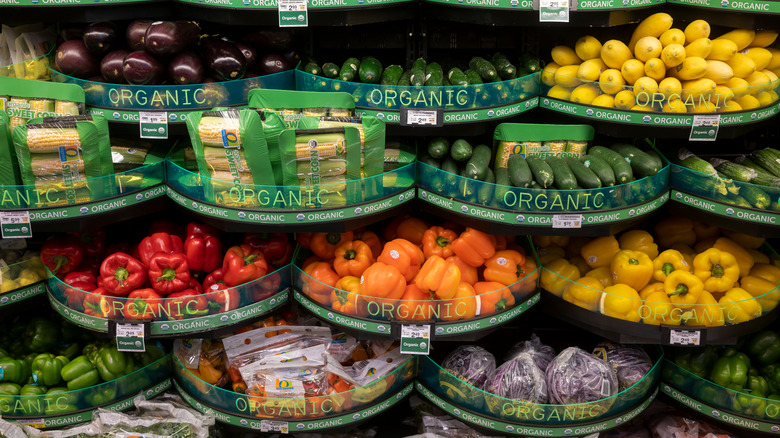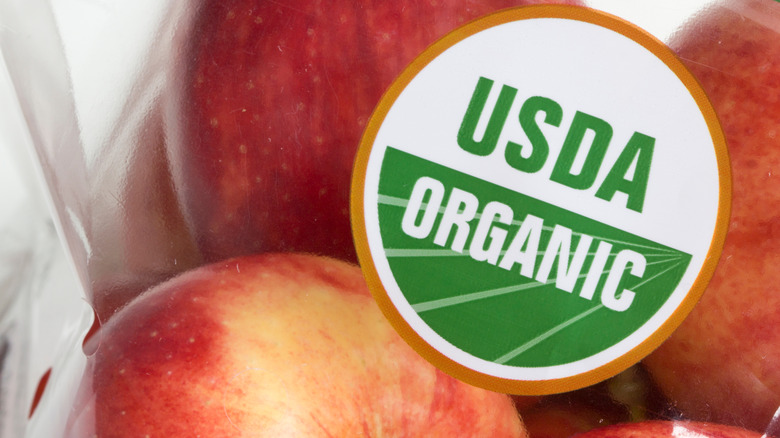How The USDA Is Trying To Thwart Organic Food Fraud
If you've been keeping up with food trends in any capacity over the years, odds are you've noticed an uptick in people's interest to buy organic food products. A questionnaire-based study published in PloS One indicated that shoppers believe that organic foods have greater nutritional value, are grown naturally, and are more environmentally friendly than non-organic products. Moreover, people with higher incomes are more likely to pay the higher prices associated with these items. But what does "organic" really mean?
According to the U.S. Department of Agriculture, for the agency to label a food item as USDA organic, its producers must only use agency-approved substances and methods for farming and processing. The soil used to grow organic produce must remain free of disqualifying substances, such as synthetic fertilizers barred by the FDA, for at least three years before the certification request. These regulations and government-issued labels help consumers decide which brands and food manufacturers to support with regard to their personal consumer ethics or health concerns. However, thanks in part to flaws in the vetting process, there have been cases of organic food fraud that may have shaken consumers' faith in the system.
New rules and regulations
Organic food fraud can reach an enormous scale. As AP News details, between 2010 and 2017, U.S. consumers spent $250 million at a minimum (and possibly over $1 billion) on foods that were fraudulently labeled as organic, thanks to a scheme by Iowa grain farmer Randy Constant. By taking advantage of what was partly an honor system for certification, Constant also inflicted serious damage on competing organic farms. The U.S. District Judge C.J. Williams, who sentenced him, said that Constant's actions "caused incalculable damage to the confidence the American public has in organic products." Unfortunately, this wasn't the only big-dollar scam. In South Dakota, a businessman paid $46 million for non-organic seeds and deceptively sold them for $71 million under a bogus organic label, per the Associated Press.
Cracks in the USDA's organic program created room for other deceptive practices well, such as slapping false "USDA Organic" labels on products imported into the country. According to Food Drive, the USDA has finalized a new, 282-page rule, which will be implemented beginning March 19, 2024. This rule will enforce new and improved certification and training for those working with organic crops globally and at all levels including growth, production, and sales. It also gives the National Organic Program more power to inspect produce and become stricter when it comes to certification requirements. These new measures are seen as a reasonable response to a program that originally had many problems, and the move is being celebrated by the Organic Trade Association.

